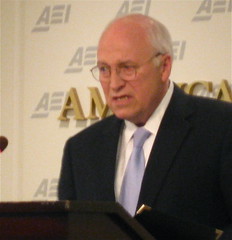McCain And Lieberman Propose Legislation For Indefinite Detention
Legislation to hold “high value detainees” for a indefinite amount of time was introduced Thursday by Sen. John McCain (R-Ariz.) and Sen. Joe Lieberman (I-Conn.).
“This legislation seeks to ensure that the mistakes made during the apprehension of the Christmas Day bomber, such as reading him his Miranda warning, will never happen again and put Americans’ security at risk,” said McCain, referencing the attempted bombing aboard a commercial aircraft by a young Nigerian man last December.
The introduction of the bill has sparked controversy among numerous human rights organizations, with many claiming that the legislation undermines the constitution.
“Our criminal justice system has proved repeatedly that it is capable of obtaining reliable intelligence from terrorism suspects, while that has not always been the case when we throw detainees into secret detentions and discard all the rules,” said Christopher Anders, the American Civil Liberties Union's Senior Legislative Counsel. “The Constitution is not optional despite the efforts of these senators to render it so.”
If enacted, the bill would ask the president to create a interagency task force to examine the suspect and decide within 48 hours if they are ‘unprivileged.' If the suspect is found to be ‘unprivileged,’ they would be held regardless of whether or not criminal charges are filed.
The task force would meet with the Secretary of Defense, Attorney General and the directors of the FBI and CIA to make final determinations as to the detainees' status.
“Under these circumstances, actionable intelligence must be our highest priority and criminal prosecution must be secondary,” according to a statement released by McCain.





 Friday, March 5, 2010 at 2:59PM
Friday, March 5, 2010 at 2:59PM


Former CIA Director Discusses New Intelligence Challenges
By AJ Swartwood
Former Central Intelligence Agency Director Michael Hayden said Tuesday that one of the great intelligence challenges of our day is distinguishing enemy information in the waves of data that exist in an increasingly tech dependent world.
“The communications you want us to intercept are coexisting on a unitary global communications network with your communications,” said Hayden during a forum at the The Henry L. Stimson Center Tuesday.
Hayden, who was replaced as director shortly after President Obama took office, outlined the goals of the Central Intelligence Agency and the difficulty of dealing with a world where information comes in massive quantities. After dismissing the idea that the Intelligence Community struggles with information sharing, Hayden characterized the greater problem as finding the “right” intelligence, a task Hayden likened to finding the proverbial “needle in a haystack.”
“The fundamental issue is how do you deal with mass, how to deal with volume … that’s the next step,” said the former Director.
Hayden did not hesitate to admit that the intelligence community has to deal with the inevitability of failure and risk. More specifically, he said that while 100% success is the obvious objective, a 70% to 80% success rate in the intelligence community is more likely the community standard.
“It is an art form, it depends on human beings, its based as much on instinct as it is on discipline and science,” said Hayden.